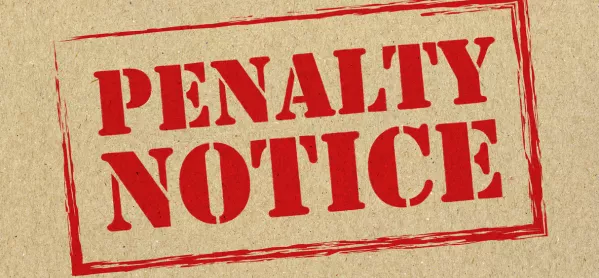Ofqual has announced plans that could see more naming and shaming of exam boards for breaking the rules, with the introduction of new “public rebukes”.
The change is revealed in a consultation launched today by the exams regulator that also proposes issuing errant boards with financial fixed penalties for lesser penalties for the first time.
Heads have welcomed the package, saying this will improve public confidence in the exams system.
News: Ofqual seeks mystery shoppers to stop exam cheats
Related: ‘Without action, exam cheating will continue’
GCSEs: Ofqual warning about GCSE papers being offered for sale
In an update today to its Taking Regulatory Action policy, first issued in 2011, Ofqual said that while fines will be issued only to awarding bodies in the most serious cases - a continuation of the existing policy - it has decided to issue public rebukes in less serious cases.
The watchdog wants to name the awarding body concerned, details of the incident’s impact and its rationale for why a rebuke is an appropriate response. Currently, Ofqual does not publish information about cases where no formal action has been taken.
It also intends to remove the threshold of £10,000 as the minimum amount of costs recovered when it imposes fines or withdraws recognition from an awarding body, signalling that it recoups costs of less than £10,000 in cases of non-compliance with its regulations.
This will demonstrate that “we take non-compliance seriously even in cases where fines are not imposed”, Ofqual’s policy update says.
Geoff Barton, Association of School and College Leaders general secretary, said the proposed changes could improve public confidence in the exams system.
“It’s in keeping with the regulation other industries do,” he said. “The public will feel more confident in the system - it might make them feel there’s some teeth to the regulator.”
Mr Barton said that for students whose exam paper had been leaked, it would give them “a sense of natural justice”.
He also said the move would help make the exams system more transparent.
“If something goes wrong, after the event, if there’s a public rebuke and an explanation of what happened, it will reinforce the role of the regulator, putting it on the same level as regulators in other sectors.”
The consultation will be open for eight weeks, from 8 October to 2 December.




